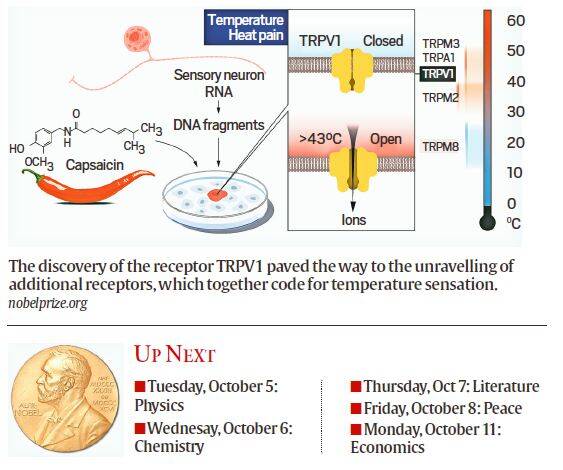Why in news?
Julius and Patapoutian have been awarded the Nobel Prize in Physiology 2021 for their discoveries of receptors for temperature and touch.
What is their discovery about?
- In the human body, only very specific proteins sense heat and relay this signal to the nervous system which then triggers an appropriate response.
- Scientists knew that such sensors must exist, but were not able to identify them until Julius discovered the first heat receptor in capsaicin, the chemical compound in chilli peppers.
- That first discovery led to identification of several other receptors that can sense coldness, pressure, etc.
What is the mechanism of the receptors?

- When something hot or cold touches the body, the heat receptors enable the passage of some specific chemicals like calcium ions through the membrane of nerve cells.
- The entry of the chemical inside the cell causes a small change in electrical voltage, which is picked up by the nervous system.
- There is a whole spectrum of receptors that are sensitive to different ranges of temperature.
- Things are similar for sensing coldness.
- These receptors were sensitive not just to external touch, but could detect temperature or pressure changes inside the body as well.
What is the significance of this discovery?
- Decoding the neuroscience of pain can help develop new targets for pain therapy.
- The identification of these receptors opens up the possibility of regulating their functioning.
- For example, if the receptors that feel pain are suppressed or made less effective, a person can feel less pain.
- There were several other therapeutic implications that might be useful in treatment of diseases like cancer or diabetes.
Source: The Indian Express
